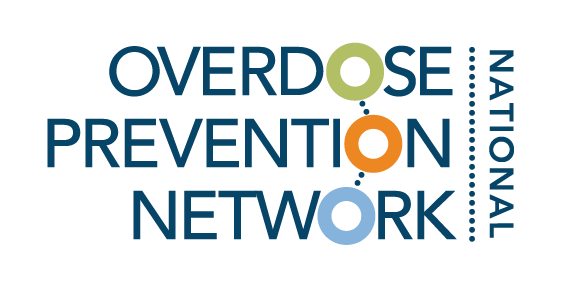
Resource Library
Toolkits, guides, and other resources vetted by experts in overdose prevention.
Filter by category and tags, or search by keyword (ex. COVID-19, harm reduction).
Preventing Overdose and Reducing Drug-Related Harm Policy and Implementation Guides for State and Local Change
ChangeLab Solutions has developed guides that offer a range of evidence-based policy strategies and a roadmap to policy implementation that can advance equity and prioritize care over punishment for people who use drugs. The strategies are intended to support state and local decision makers, government agency staff, public health practitioners, and community members in considering policies to prevent overdose and reduce other drug-related harm in their communities.
Addressing Opioid Use Disorder in Emergency Departments: Expert Panel Findings
The National Council for Mental Wellbeing hosted a technical experts’ panel (TEP) to identify best and promising practices to engage individuals surviving overdose and assist individuals with opioid use disorder (OUD) presenting in emergency department (ED) settings. This report identifies key policy and practice recommendations informed by existing research, case examples and findings from the TEP.
Supporting Telehealth and Technology-assisted Services for People Who Use Drugs: A Resource Guide
This resource guide created by the National Council for Mental Wellbeing (National Council) aims to help harm reduction organizations, SUD treatment providers and other organizations that serve PWUD overcome challenges associated with implementing telehealth and technology-assisted services and leverage these advances to help improve the health and wellness of PWUD.
Getting Candid: Framing the Conversation Around Youth Substance Use Prevention
The National Council for Mental Wellbeing (National Council) created this guide with the purpose of equipping providers with substance use prevention messaging and share guidance on how to effectively deploy this messaging with middle and high school age youth.
Fostering Resilience and Recovery: A Change Package
To better address trauma in primary care, Kaiser Permanente and the National Council for Mental Wellbeing (National Council) launched the Trauma-Informed Care Primary Care: Fostering Resilience and Recovery initiative to develop, test, disseminate and scale a field-informed Change Package. Implementing trauma-informed approaches within primary care marks a fundamental shift in care delivery that supports improved utilization of services, improved patient outcomes, increased staff satisfaction and healthier work environments.
Local EMS Lead the Country with Opioid Treatment Model
This webpage overviews the Contra Costa County Emergency Medical Services (EMS) Pilot Project. It is the first in the country to launch a pilot project for paramedics to provide medication for addiction treatment (MAT) directly to patients in withdrawal from opioid use disorder. Lead by Dr. Gene Hern, the EMS Project Director of the CA Bridge program at the Public Health Institute, Dr. David Goldstein, of the Contra Costa County Emergency Medical Services Agency, and Dr. Ori Tzvieli, the Medical Director of Contra Costa County Public Health, the project has started serving patients in the region.
Clinical Provider Quick Tips Addressing Substance Use in Primary Care Settings
"This Toolkit consists of a series of ""quick clinical tips""- bringing state-of-the-art resources and practical tools to busy clinicians addressing patient stimulant and fentanyl use in primary care
settings."
Harm Reduction Hacks Microsite
Harm Reduction Hacks is a comprehensive microsite and resource to guide organizations developing new and/or with existing syringe services programs (SSPs) in program design, implementation, and organizational sustainability. This resource was developed through the CDC-funded National Harm Reduction Technical Assistance Center.
Dear Colleague Letter: Xylazine
The DEA recently issued a warning about xylazine, a veterinary drug. This "Dear Colleague" letter from the Substance Abuse and Mental Health Services Administration (SAMHSA) provides a report on the risks of xylazine.
CA Department of Public Health Xylazine Information Page
The California Department of Public Health provides an informational page on xylazine, a veterinary drug. Xylazine has been linked to an increasing number of overdose deaths nationwide.
Evaluating the impact of naloxone dispensation at public health vending machines in Clark County, Nevada
The research presented in this article examines the extent to which naloxone dispensation at public health vending machines (PHVMs) was associated with changes in opioid-involved overdose fatalities in Clark County, Nevada.
Wellbeing Wednesdays - Episode 7: "Advancing Health Equity"
Hear Rochelle P. Walensky, M.D., MPH, director of the Centers for Disease Control and Prevention (CDC), and Chuck Ingoglia, the National Council’s president and CEO, discuss the state of health equity in America, barriers to treatment, what equitable systems of care look like and more.
MAT Treatment for Pregnant Women Flyers
This flyer is an example of a resource created by Sacramento County Opioid Coalition and is available in both English and Spanish. This resource is made available for use in clinics and offices.
The 2022 National Healthcare Quality and Disparities Report: We Still Have Much Work to Do
How is the US really doing on health care? Knowing the current trends is key to our work, and this annual report from the Agency for Healthcare Research and Quality (AHRQ) is the essential guide.
Fentanyl Overdose
In this JAMA Patient Page, Fentanyl Overdose, it provides an overview on how fentanyl overdose occurs, how it is treated, and other information on fentanyl.
Traditional Practices & Native Substance Use Healing (August 2022)
Tribal MAT ECHO training from August of 2022 that discusses the benefits of linking Native traditional practices with substance use recovery.
Expanding Access To Medications For Opioid Use Disorder Treatment For Justice-Involved Populations Under Community Supervision: Best Practices From Four States
In July 2021, four states discovered a variety of policy and programmatic approaches to improve the medications for opioid use disorder (MOUD) landscape. The four states were able to pilot interagency collaborations, launch training and education curricula and explore innovative solutions around screening, treatments and case management.
Guide to Harm Reduction in the Emergency Department
While many medical professionals promote an abstinence-based approach to discussing drug use, offering tools and education around safer drug use supports patient health if they continue to use drugs. Harm reduction is the moral foundation and root practice of offering these tools and services. View this guide from the CA ED Bridge Program on how to establish a harm reduction program in your hospital and easily access related resources.
Strategies to Lower Opioid Demand
Dr. Willis discusses what strategies to use to lower the opioid supply and to safely manage chronic pain. He also addresses the steps of recovery for those who are experiencing opioid use disorder.
Spotlight - Strategies to Reduce Opioid Supply
Dr. Grover discusses how doctors can reduce the opioid supply and use safer prescribing methods for chronic pain.










